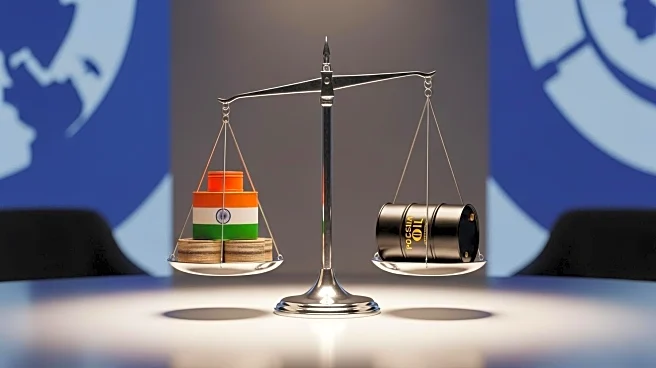What's Happening?
President Trump has imposed significant tariffs on Indian goods as a response to India's continued purchase of Russian oil. This action coincides with a regional security summit in China attended by Russian President Vladimir Putin and Indian Prime Minister Narendra Modi. The summit, held in Tianjin, is part of the annual gathering of the Shanghai Cooperation Organisation (SCO). Modi's visit marks his first trip to China in seven years, during which he is also engaging in talks with China's President Xi Jinping.
Why It's Important?
The imposition of tariffs by President Trump on Indian goods highlights the ongoing geopolitical tensions and economic strategies employed by the U.S. in response to international trade and political alliances. This move could impact U.S.-India trade relations, potentially leading to increased costs for American consumers and businesses relying on Indian imports. Additionally, it underscores the U.S.'s stance against countries maintaining economic ties with Russia amidst the Ukraine conflict, aiming to pressure Russia through economic isolation.
What's Next?
The tariffs may lead to diplomatic negotiations between the U.S. and India to address the trade imbalance and geopolitical concerns. India might seek alternative markets or negotiate exemptions to mitigate the impact of these tariffs. Furthermore, the summit in China could result in strategic discussions among world leaders, potentially influencing future international policies and alliances.








